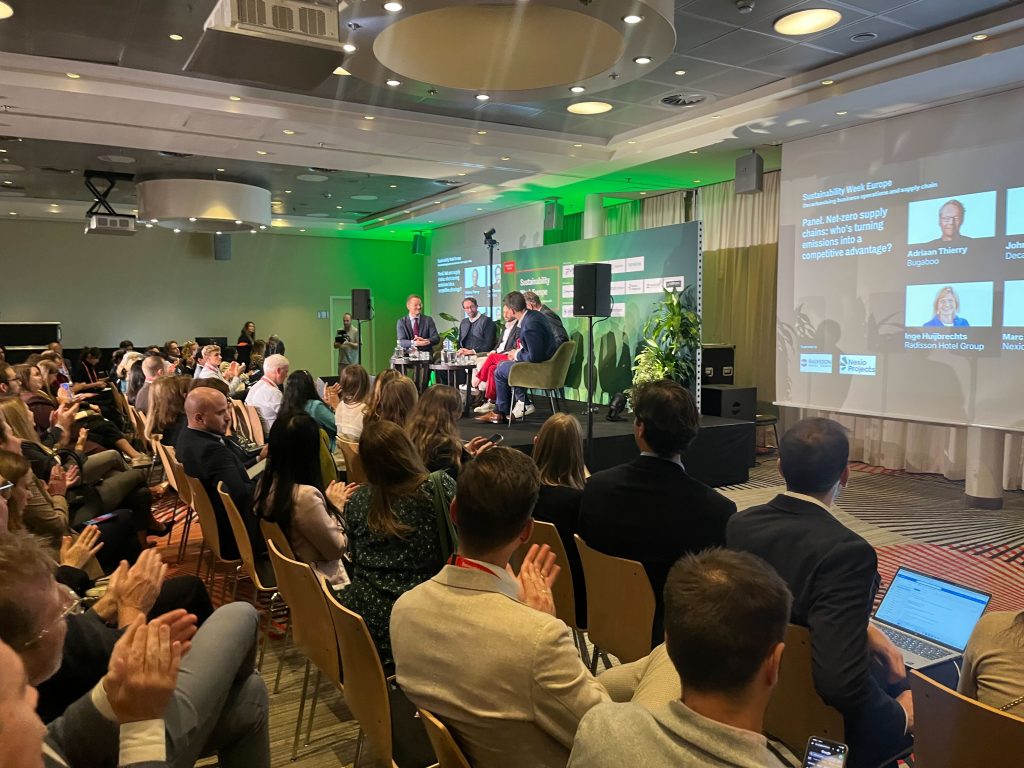This week in Amsterdam, Sustainability Week Europe brought together business leaders, policymakers, and investors for a pragmatic discussion on turning sustainability goals into measurable results. Conversations focused on what it actually takes to execute transition plans at scale: aligning strategy with operations, financing real projects, and building coalitions that can deliver.

A central theme was the business model transition toward net zero. Speakers explored how companies create value while reducing emissions, improving energy efficiency, and redesigning products and services with circularity in mind. Discussions covered the interplay of technology (data platforms, automation, low-carbon solutions), climate investments (capex planning, blended finance, risk management), and governance (clear accountability, incentives, transparent measurement). A recurring thread was collaboration — within firms (sustainability, finance, operations) and across the ecosystem (suppliers, cities, academia, capital providers).

Many sessions focused on practical transition roadmaps: near-term targets, portfolios of initiatives, and data to track progress. Participants emphasized combining digitalisation (to capture and analyse performance), ESG frameworks (to structure priorities and risks), and transparent reporting (for boards, regulators, and communities). The message was consistent: data makes progress visible, and visibility accelerates decision-making.
Reflections from the floor — highlights our colleague noted:
Another recurring topic was supply-chain transformation: engaging suppliers, sharing methods, and moving from one-off pilots to scalable playbooks across regions. Panels covered materials and circular flows, product life-cycle impacts, and the operational realities of switching to cleaner energy and logistics. Credible progress depends on reliable data, comparable metrics, and processes simple enough to implement across complex organisations.
Open discussions showed that sustainability today is not a separate initiative but a way of thinking that shapes corporate strategies, products, and relationships with communities. The shift is from isolated projects to integrated portfolios of action, where technology, finance, and governance are designed together. Events like this help organisations see how others approach transformation — what works, where it stalls, and how to maintain momentum through clear targets, staged investments, and honest reporting.
Key takeaways in brief: